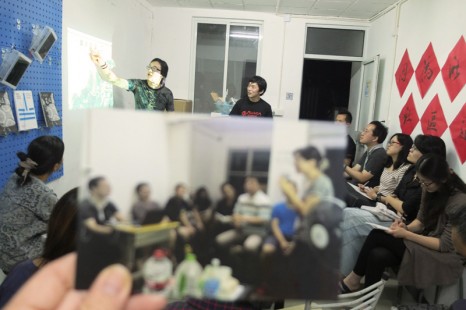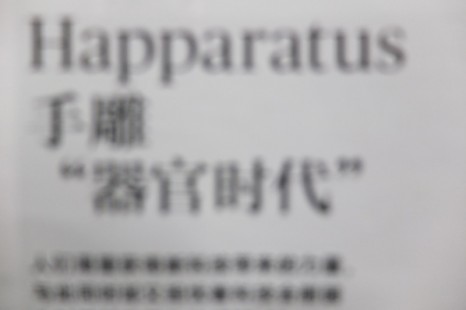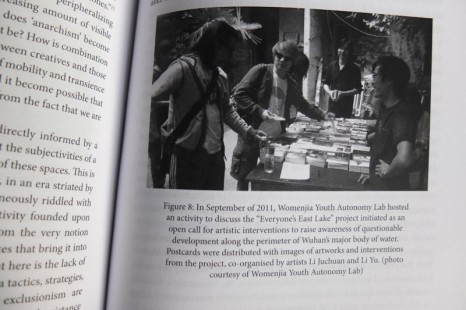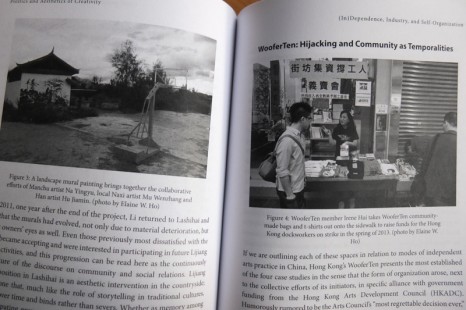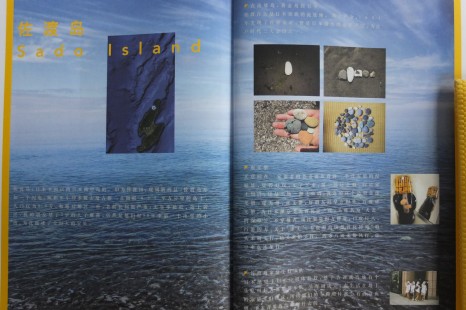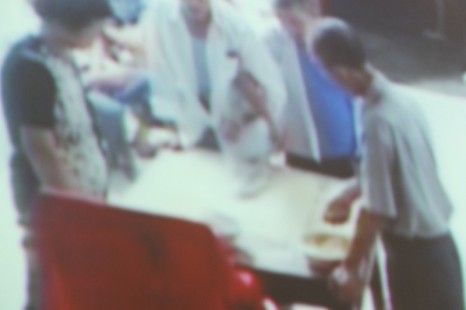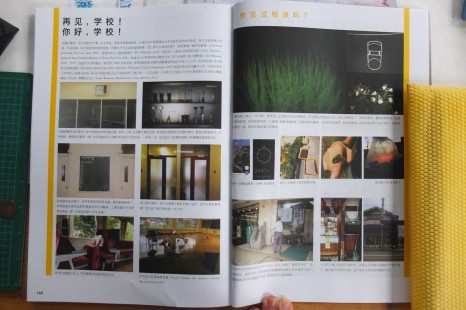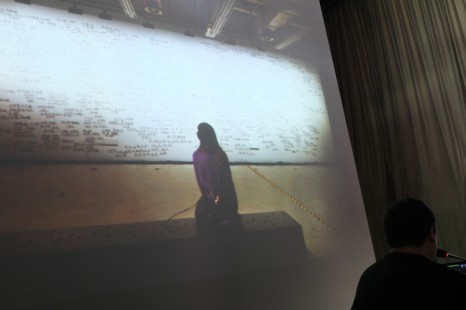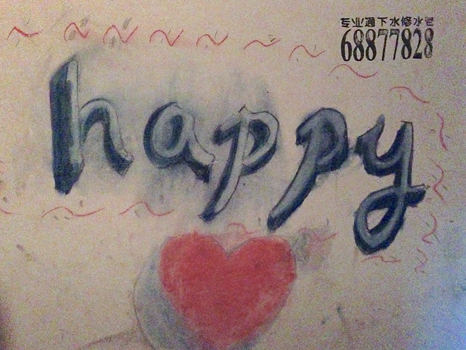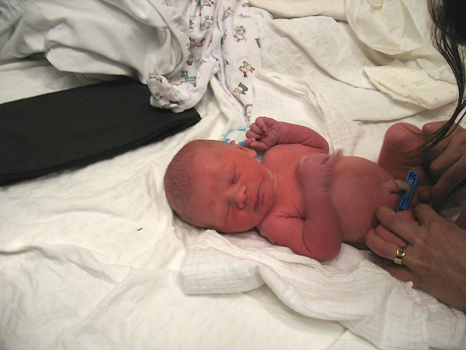「但願為您描述得更好」ASMR——在糟糕的日子里,讓您舒服一下
雉尾電台,2018年4月20日,凌晨1-兩點
archived recording, originally broadcast on Pheasantail Radio, 20 April 2018, 1 – 2 am UTC +08
featuring selections from:
🎧 《A User’s Guide to Demanding the Impossible》 by the Laboratory of Insurrectionary Imagination
🎧 「Coping Mechanism: The Care of Self and the Politics of Listening in Art and the ASMR Community」by Ashley Lee WONG
🎧 「RECEIVE UNEXPECTED MONEY IN 1 DAY | Subliminal To Attract Money」
首爾蘑菇筆記 Spore-adic Notes for Seoul
 Y’s drawing appeared on his leg a few weeks later…
Y’s drawing appeared on his leg a few weeks later…
Having left out the exact words i had meant to express to her, i sent the e-mail a second time: “oh, before i meant to say: ‘and despite *my fear and nervousness*…’ ” Fear and nervousness to be left out at all costs, if we are to talk about serendipity. Except that it’s a silly word. Except that we couldn’t find the right word in Korean. Because 緣份 is more than serendipity, if we are talking about circles of time, letting things be, how we got here in the first place. I will try to forget about my fear and nervousness, to find comfort in someone else’s words, like D. says—“理論很舒服”。
It’s the resonance that she means here, and that is to say a——let’s call it ‘pleasant’——reverberation between the two.
(it’s funny how that’s never really so acceptable in art economies)
 from “Things That are Massively Distributed” by Alma HEIKKILÄ
from “Things That are Massively Distributed” by Alma HEIKKILÄ
Y.Y. and I.S. made an exhibition with the exact same name as our project a few months ago. I didn’t know, I really didn’t know! Clumsily avoided saying too much afterwards except the utterly boring, “I really liked your show”, and basically also delayed to read the accompanying publication, for fear of inadvertently finding too much resonance. But then one thinks they should be doing more research, the spores have already been released and——let’s take small comfort in numbers again——I.S. does write about three plus one becoming understandings of the word ‘catalogue’, so one and one and one and one…new appendages would be the point of these communiqué—let’s grow into our new eachother bodies.
(a question to you though, why does agency become automatically associated in singularities?)
 from “Catalogue Essay” by Isabelle Sully, Catalogue (Publication Studio Rotterdam, 2018)
from “Catalogue Essay” by Isabelle Sully, Catalogue (Publication Studio Rotterdam, 2018)
And then at the cusp of their heat wave, the one that makes a girl conditioned to heat and sweat giggle, other Girls Like Us picked up the same networks of drifting mycellium, and they deconstructed the magazine in another magasin, taking off and piling up, cushions and colours and all forms of care…

from the Girls Like Us workshop; A School, A Park 2018
We keep talking about things that spread and circulate. People, goods, ideas, memes, mycelia. All that fussing about, when actually the question of survival, of making a home (outdated concept?) is a very concentrated, tiny little thing. Like focusing upon words across lines, line to line, and all the networks in the world following through to that little nub at the end of a serif font. And of course it’s no end, Borges, the sentences continue, and your train of thought goes somewhere else. I’ve misunderstood you.

Dear Anna,
Today we had a very nice discussion centring around your book with our collaborators from Read-in and Kunci, and together we came up with a few questions to ask you:

M. has mentioned several times about needing to find out again the name of the Japanese scholar who talked about our Asian spinelessness. In Eastern ontology of print there was no spine. The book was a scroll. Does the spine allude to a ‘Western rigidity’ and an obsession with structure and order? “We have no spine but that will be something that we’ll talk about.”
(but to have the courage to talk about it, i’ll have to forget my fear and nervousness)
To mention in speech what somebody else has said is perhaps a way of ‘owning it’. Or what are the footnotes of speech? Can the simultaneity of attributions be translated in real-time, like ASMR tingles and little cartoon devils on shoulders? And what if you are the one who is really terrible at telling stories, at making the punchline of the joke work? No, I think I’m funnier in Chinese.
But what I really wanted to tell you about is something that has half-slipped my memory for at least ten years now, though the other half of it keeps coming up every now and again, like those waves of text while walking.
I read you here and I read you there, here and there, like a spore trapped in my memory because I will always remember the fuzz of something in the vicinity of you on the page. At the same time I know exactly where you are, left or right, a third of the way down…everything else in darkness as we rode a night bus through a foreign country.
— from the COVER; Hong Kong, Shenzhen and Guangzhou, Display Distribute『CATALOGUE』No. 3, co-edited with Kunci and Read-in
This one was somewhere about three-quarters of the way down, on some days it’s on the left side of the page, on others it’s the right. He talks about the linguistic typology of words that become true by virtue of their utterance——what are they called? In conjunction with this writing, I tried——as I do every once in a while when I want to ‘own it’, to track it down again. Weird keyword searches, scanning the possible PDFs. Tonight I realised that I must have lost the hard copy of that beloved book, the one that I think it’s in. But then I found only one sentence from the entire PDF version highlighted: “For human beings who have lost every sense of naturalness, each single gesture becomes a destiny.”
I won’t tell you who this comes from so that you’ll feel the same haziness as I do,
(remember my place on the page)
as if I was telling it to you in casual conversation while we are waiting together for something. Let’s own it. But anyway, it’s not the term ‘speech acts’. Though I saw that exhibition as well. If we should talk about our being-in-language, utterances to representation, yes, then my fear and nervousness comes back, a whole life gone by…destiny. and it circles back to 緣份. it must be circular, it must be circular, I say to myself. Not so grandiose as a speech act, but as small and tiny a little thing, like, “sigh…”
____________
* This post is also, in ever so slight variation, germinating another website called 圍群 Monument of Apron。
Posted by 丫 | reply »while waiting for responses
…something broke and something could put it back together
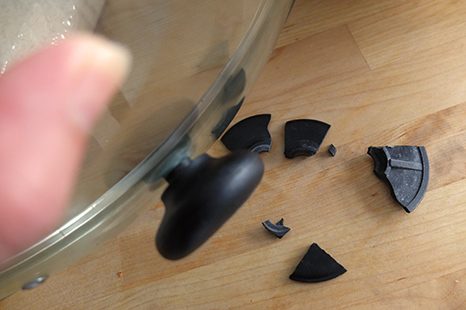 the glass lid of a pot fell to the ground, but only the spacing broke
the glass lid of a pot fell to the ground, but only the spacing broke
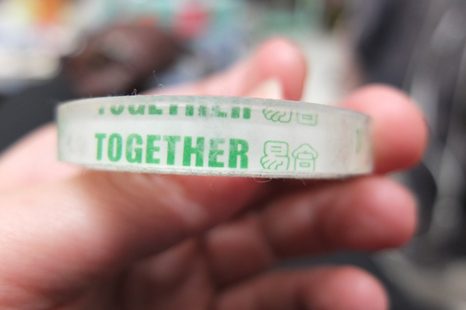
“together” brand adhesive tape
filled with initials and dotted with territories (for aka-chan)
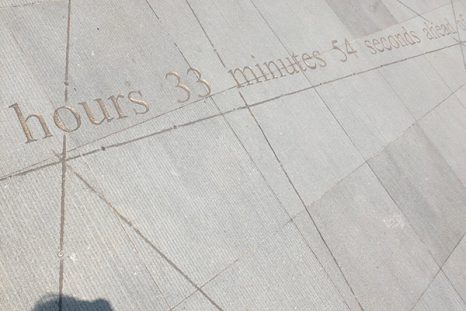
Dearest aka-chan,
Has it been a big year for you, preceding and to come after the day yesterday which was indeed a day? i think about you often this year, you know, something like the distance of six months and the time of always. it makes me happy your daughter declares you are four years-old this time.
Actually, i celebrated your day in the city where we travelled, four years and 11 months ago. i wrote a message to z and we will meet after the 14th of this month. and probably i will meet mevrouw a at the beginning of next month. and f later in that month. but there are many more initials that have been lost, and sometimes this feels like the ocean, sometimes it feels sad. but i still don’t want to admit regret, so last week i visited an ocean filled with initials and dotted with territories, an ocean that knows very vast and very small at the same time.
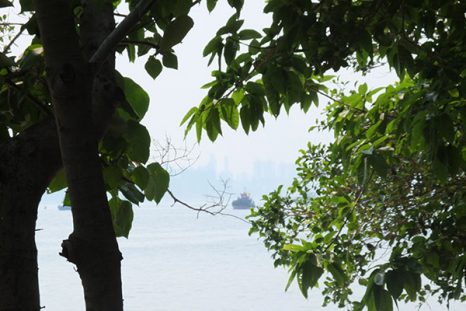
At the bottom of a granite hill, there are many seafood restaurants which make this area a popular place to visit. you have to pass through small alleyways filled with creatures in glass tanks, and when you see a jade green postbox you can turn slightly to the right, then keep walking to get to the sea. this is one of the old postboxes from the colonial era, one of only seven left in the city bearing the cipher of King George V, but its freshly painted green-blue is really just a bad moustache.
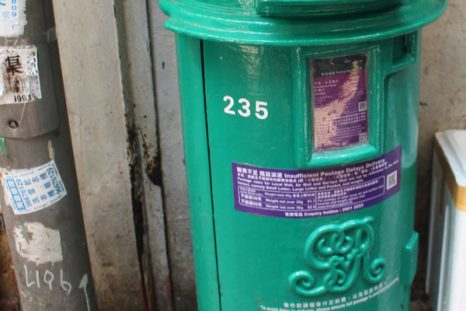
when you emerge from the alley and arrive at the ocean, actually it looks not so much like the sea but a river. There is another bank with another hill on the opposite side, with granite that is identically uniform and equigranular (the average grain size is just over 2mm) to the granite on this side. There are some aunties and uncles playing cards on this side. Maybe there are on the other side, too. Although it is less than 500 metres across to the other side, it is wide enough not to see aunties and uncles over there. But my aunt used to live on that side, maybe only for about one or two years. Now she lives closer to this side, closer to where our family grew up, which maybe makes sense because here we are at the gateway for the Fujianese immigrants coming into the city. There were also many immigrants from Chiuchow, which is further east and further north from here as you keep heading along the coast. If you keep going further and further east and further and further north, you will arrive in Japan, and it is through this gateway that many Japanese merchants also passed, as well as Portuguese merchants on their way back from Japan.
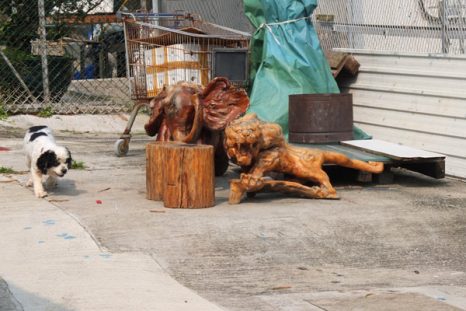
The ocean is very vast. But here it is very small, less than 500 metres across, and there is a small temple for the goddess 天后 Tinhau. Actually, it is better luck to call her 媽祖 Matsu. She is the goddess of the seafarers, and you will find many temples in this region dedicated to her. Once i visited her island and sat on the cliff of her knees, looking over to China. I fell asleep at one point, and when I awoke, I was in China. Twice when people awoke here, they saw Matsu resting in the clouds——once in 1953, the year my mother was born, and once just last year, when I was halfway between here and Japan.
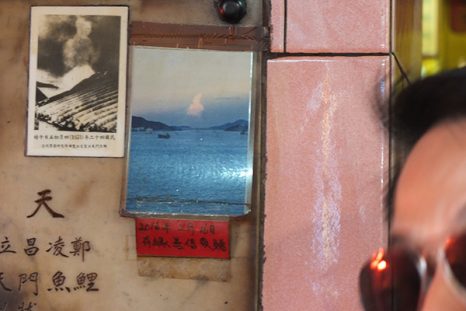
If you entered the harbour from the east, perhaps Chiuchow or Fujian or Japan, her presence at this gateway would have calmed you, and upon passing through the inlet the water would have indeed been calmer, and you would have rested easy only to be ransacked by the pirates watching from above on the granite hill. there have been gangs and clans and colonisers here, changing hands and moving around for longer than we know. there have been territories since the beginning of these beginnings… something is always east to somebody else. sometimes the view is long and vast, and sometimes it is less than 500 metres across.
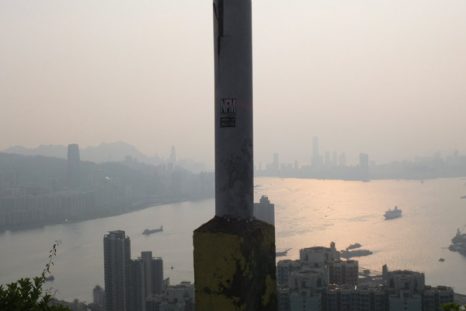
gnomic notes on a dialogue Posted by 丫 | reply »
before and after the mooon, a process of reading and writing
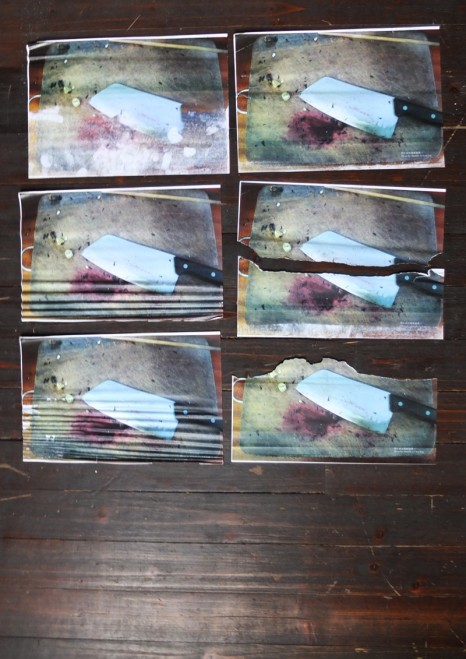 about one month ago, these knives killed the photocopy machine. i was unsettled where they ignored and just kept on working. and then just a few days ago, the moon sliced my computer in two. in all of these aftermaths, yes——”keep working”, they said. though i was thinking of you.
about one month ago, these knives killed the photocopy machine. i was unsettled where they ignored and just kept on working. and then just a few days ago, the moon sliced my computer in two. in all of these aftermaths, yes——”keep working”, they said. though i was thinking of you.
————————
————————
————————
Posted by 丫 | reply »notes on Thirdspace, errant crepe
To enter a space from the critical position is a contradiction of sorts, both an opening and a closing. The body moves forward passively while the mind holds back actively. It is a splintering of awareness, perhaps not so dissimilar to a contemporary condition, bearing and baring a third position, more, wanting to be found, approaching words. I can affirm it again to you here now, as we read, there is something Aleph-like.
I said to myself that I would simply watch the movie. Doubts carrying forward, being ushered into, I followed the direction pointed to by the slightly hunched figure, down a dark parallelogram path towards the light of the screen, looking down once to see the 3 for row number, then back up to see Larger-Than-Life in conversation, a film already started. There were co-conspirators in the packed room, but I did not know where they were. I crossed the cold light reflected on subsumed faces towards the single empty seat in row 2, a quick thought that someone must have taken my seat one row above to be with a friend, then sank down low into the seat. Larger-Than-Life was still in conversation, it seemed to be something about making a film.
I turned halfway around, half afraid to really see my co-conspirators. Something kept me from the spirit of conspiracy, something personal, or perhaps a lack of solidarity. One week ago, they had reminded me of another meeting room from a few years before, with the same mischievous eyes lighting up over the details of planned public disturbance. Piss, shit, throw light in their eyes. But really it was not the boy band instigators as such that disturbed, it was the nomenclature. Co-conspirators were supposedly reading partners, we were told, and we had been reading from Soya, from Los Angeles to Amsterdam to Shanghai, from Thirdspace. The proposition to hold the meeting outside of its usual locale was perhaps an active form of reading, but in question was the lax literation of thirds into cinematic space, only debated in heat against the Space of a clothing store chain dressing room which had recently dominated newstainment chatter. In the latter case, a so-called private space had been tried on as cinematic Space, and a pair’s selfie sex on one square meter led to the further reaching destruction of a human flesh search in world wide web space. The publicness of this act and its consequences are marked by the ambiguity of it being a privately initiated endeavour along the lines of viral marketing. As a question of publicity, the dressing room thus warranted a reading, some argued, but in the end, a general passivity among the group met par with one person’s insistence to hold the next session of the reading group in a cinema.
Tickets, erguotou, mirrors and glowing wands used at concerts were purchased. A WeChat group serves as organizing device and reading medium, the giggling Thirdspace amidst the Firstspace of the screening room and the Secondspace of Tiny Times. There is an obvious condescendence which carries the absurdity to a high.
At the edge of row two’s uplifted faces, I slink down a bit lower, obediently guilty for continuously checking mobile phone activity. This radical opening feels predictably like grade school, and from the inadvertent margin of the second row, I choose to watch a film.
There is a scene in which the struggling director narrates a flashback to his deflated crew, and desaturated color effects drone out the cliché of the director as schoolboy, othered for his invention of a superhero fueled by the power of egg and coriander crepes. As audience, we laugh in a comedic Space created by effect and affects. It surrounds the actors playing actors like a gelatin, wiggling around their low-budget tears of outcast. We laugh while they cry, but everyone identifies. Solidarity is renewed. The film in the film must go on.
Someone in the chat group is counting the number of people leaving the Space. I must have been too absorbed in Secondspace to have noticed, and looking back again to the audience behind me, nothing looks out of place in the frame of vision——simply another imprint of Society of the Spectacle.
This movie has indeed a spectacular way of making us enjoy its cheapness, as it lays bare the superhero genre while keeping all the same tropes intact. I like seeing the texture of his badly crafted mask in high-resolution from the second row, the clumsy choreography of a fight scene traced by zip lines, sappy talk about dreams and ideals from the tops of skyscrapers. It was at that moment that someone in Thirdspace chimed up about his own endurance, that he was the only remaining conspirator among the group, the rest trying to arrange a meeting point somewhere around the nearest metro station after being ousted by security. I thought perhaps we were dreaming the same dream together from two sides of a peak, an unseen cohort and I, but perhaps doubt was my only audience. I romanced myself in the numbness of Secondspace before suddenly falling down a dream of Four, Five. Nobody gets to see the film in the film, and nobody saw me appear! Doubt opens elsewhere, I am overwhelmed counting Spaces. Real pop stars make cameo appearances playing themselves, and it is they, with the thrill of Firstspace, who promise that “the making of” (Five) will be even better than the film (Four). That is how it ends, the rock band walks away, fading into the fiery gases of promise. It is as stupidly bad as I had begun, ironically ushered into an opening and closing. Self-castaway from my co-conspirators in Tiny Times, this was Larger-Than-Life!
Posted by 丫 | reply »that day of the year 就是那天
iwishicoulddescribethatbirthdaytoyoubetteritsbeentoolong.
Posted by a | reply »

